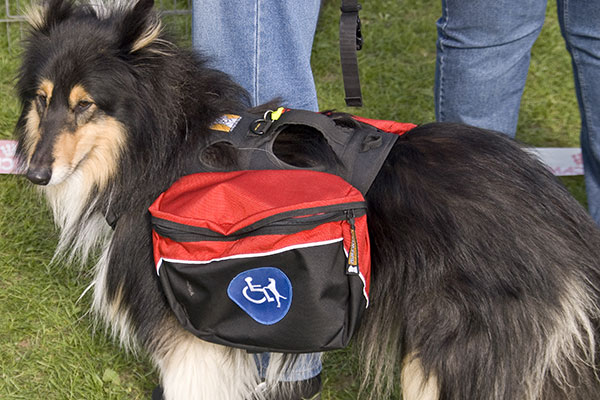Can you receive compensation for job-related mental stress?
Our PTSD lawyers can explain your legal rights.
Post-traumatic stress disorder (PTSD) is usually a psychological injury from a traumatic event. It’s a serious and debilitating mental health condition commonly associated with soldiers and military service men and women who go to war.
However, the condition also deeply affects many people across the nation working in countless industries and professions.
In police officers, PTSD may arise after a shooting incident, while in firefighters it could be caused by witnessing death in an accident.
First responders, including police officers, emergency medical technicians (EMTs), paramedics, firefighters and state troopers, can suffer from PTSD as a result of experiencing or witnessing traumatic events in the line of duty.
If you’ve personally experienced, witnessed or been confronted with a traumatic event in the workplace resulting in PTSD, you may be entitled to workers’ compensation benefits.
As long as the following two statements are true, you may be compensated by your employer for medical expenses and lost wages arising from a work-related traumatic event:
- You (the employee) are receiving or have received licensed counseling, and a licensed counselor or mental health professional has diagnosed you with PTSD resulting from the performance of your job duties.
- You properly reported the event to your employer, and your claim is filed on time with the Industrial Commission of Arizona.
As a Certified Workers’ Compensation Specialist of the Arizona State Bar, Robert E. Wisniewski was responsible for litigating the first police PTSD case acknowledged by Arizona law at the Industrial Commission of Arizona. Since then, Wisniewski has successfully represented police, firefighters and first responders in their PTSD claims, and he has become a nationally recognized attorney expert in the prosecution of these complex workers’ compensation matters.
There’s no need for you to endure more mental stress than you’ve already suffered. You should focus on personal recovery, so let us focus on your financial recovery.
Without professional representation, many injured workers fail to receive the justice and compensation they deserve.
When you seek help from our experienced attorneys, we will defend you and shoulder the burden of securing fair compensation for you and your family.
We will coordinate with your treatment team to document all relevant medical evidence for your claim. You are not alone.
Our experienced work injury attorneys have successfully represented police officers, first responders and other public employers who suffered from work-related post-traumatic stress disorder. Schedule your free consultation today.
Thank You for All These Years of Service
“Thank you for all these years of service. I don’t know what I would have done without you to help. You have all my deepest appreciation.” – D.W.T.
What PTSD Sufferers Should Know
You’re not alone.
The first thing you should know if you or a loved one are suffering from PTSD is that you are not alone. In addition to your family, friends, coworkers and other people who are willing to support you during this difficult time, many other individuals have experienced PTSD in the course of their work just like you. In fact, it’s much more common than you might realize. It has been estimated that 32% of first responders and 19% of police officers suffer from PTSD.
It’s okay to ask for help.
The second thing to know is that it’s okay to ask for help. The tricky thing about PTSD is that many people who suffer from it tend to underplay or conceal their pain because they see it as a sign of weakness. Whether you’re a soldier in combat or a first responder simply trying to do your job, you deserve support and you don’t have to live with this pain forever. There are treatments and therapies that can help you overcome this trauma.
PTSD Facts and Statistics

About 1 in 5 people who experience a traumatic event will develop PTSD.

About 8 million Americans have PTSD in a given year.

Between 125 and 300 police officers commit suicide every year.

About 6 of every 10 men (or 60 percent) and 5 of every 10 women (or 50 percent) experience at least one trauma in their lives.
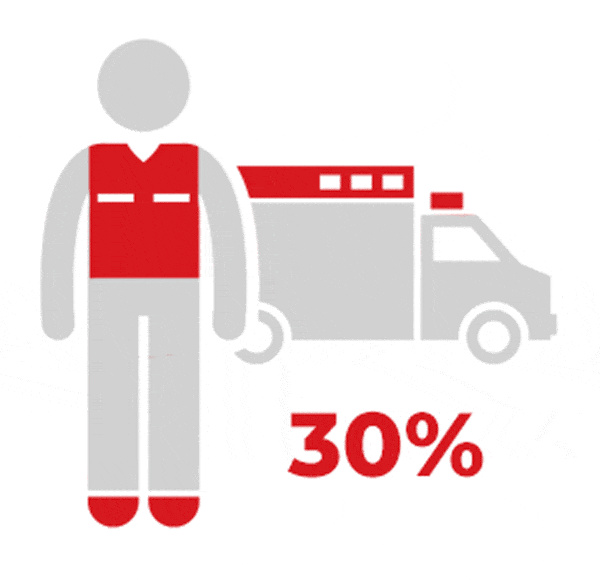
It is estimated that 30 percent of first responders develop behavioral health conditions, including depression and PTSD.
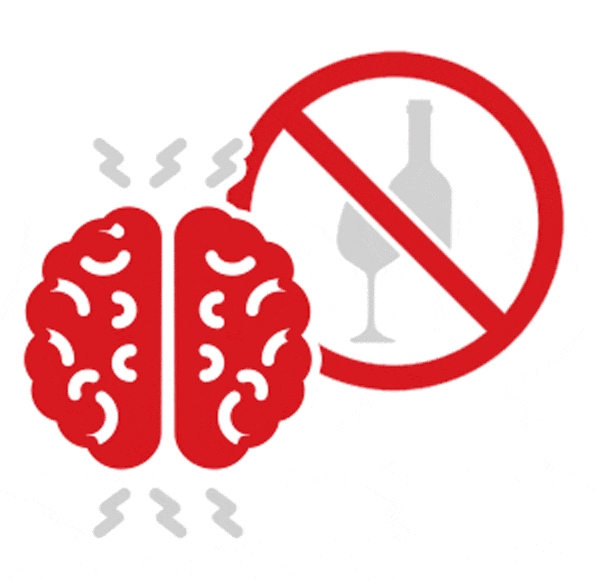
Nearly one-quarter of all health care workers showed signs of probable PTSD, and almost one-half had probable alcohol use disorder.
Sources: https://www.nimh.nih.gov/health/statistics/post-traumatic-stress-disorder-ptsd | https://www.ptsd.va.gov/understand/common/common_adults.asp | https://www.samhsa.gov/sites/default/files/dtac/supplementalresearchbulletin-firstresponders-may2018.pdf
“People living with PTSD face a number of serious challenges such as recurrent nightmares and flashbacks of the event, feeling of helplessness, being detached emotionally (especially with family) and being hyper-vigilant.
I help my clients restore their sense of worth by being someone who cares and who is willing to listen and to try to help them.
PTSD Signs and Symptoms In Injured Workers
PTSD is commonly caused by witnessing traumatic events, or the result of head injuries and traumatic brain injury. Following a traumatic experience in the workplace, workers may experience some or all of the following symptoms:
- Severe depression occurring over a prolonged period of time
- Persistent anxiety and excessive worry
- Recurring unwanted thoughts or nightmares of the traumatic experience
- Flashbacks of the traumatic event
- Loss of appetite
- Withdrawal from family, friends and co-workers
- Insomnia and difficulty sleeping
- Loss of self-esteem
These and other symptoms can affect your ability to work, and also negatively impact your life outside of work. Studies show that workers with PTSD have higher rates of absenteeism, a greater number of medical visits, an increased likelihood of unemployment or underemployment, lower hourly pay, and increased difficulty meeting work-related demands.
In as many as 90% of PTSD cases, the patient experiences another mental or behavioral disorder such as depression, anxiety, alcohol abuse, personality disorder, social anxiety disorder or increased risk of suicide.
How PTSD Is Diagnosed and Treated
Post-traumatic stress disorder is particularly difficult to diagnose and treat because individuals who suffer from this condition are often resistant to seeking professional help and are keen to avoid the fact that they are struggling. They often feel isolated and helpless. At the same time, many first responders, healthcare personnel and other people suffering from PTSD are highly individualistic and believe they can manage their symptoms on their own. In some occupations, mental illness is perceived as “weakness,” which establishes a dangerous and harmful stigma.
Diagnosing post-traumatic stress disorder
In order to be compensated for work-related PTSD in Arizona, the injured worker must first be diagnosed by a medical professional. To determine this, a doctor may conduct a rigorous physical examination to rule out any other medical conditions that may be responsible for your symptoms. The physician might also order a psychological examination during this period to examine whether or not your PTSD symptoms arise from a traumatic event that you witnessed, experienced or were exposed to.
Finally, the medical expert will likely use the criteria provided by the American Psychiatric Association’s “Diagnostic and Statistical Manual of Mental Disorders” (DSM-5) to formally diagnose you. PTSD was first added to the DSM-5 in 2013, in the fifth edition. The APA released the latest update to its codes in October 2020.
According to the DSM-5, all of the following 8 criteria are required in order to diagnose a patient with PTSD:
- Criterion A: Stressor. The individual was exposed to “death, threatened death, actual or threatened serious injury, or actual or threatened sexual violence” either directly, through witnessing the trauma, after learning that a close loved one was exposed to trauma or indirectly through “averse details of the trauma” (as is common with first responders).
- Criterion B: Symptoms. The individual must experience at least 1 recurring symptom such as unwanted memories and flashbacks of the trauma, nightmares, emotional distress or physical reactivity to the traumatic event.
- Criterion C: Avoidance. The individual avoids thoughts, feelings or external stimuli that might trigger reminders of the traumatic event.
- Criterion D: Negative thoughts or emotions. The individual experiences at least 2 changes in cognitive or behavioral well-being after the trauma, including memory loss, self-blame, loss of interest in activities, feelings of isolation, negative perceptions of the world and difficulty seeing things in a “positive light.”
- Criterion E: Changes in arousal and reactions. The individual’s natural arousal and reactivity following a traumatic event worsen through destructive behavior such as increased irritability or aggression, risky behavior, hypervigilance, easy to startle, difficulty concentrating and insomnia.
- Criterion F: Duration. The symptoms have lasted longer than 1 month.
- Criterion G: Impairment. The symptoms disrupt or impair the individual’s life in some way, such as socially or occupationally (in work).
- Criterion H: Exclusion. The symptoms are not caused by medications the individual is taking, or due to substance abuse or another illness.
Evidence-based PTSD treatments
Trauma-focused psychotherapies
As the most proven and recommended treatment for PTSD, trauma-focused psychotherapies (sometimes referred to as “talk therapy”) help patients process the traumatic event or experience that triggered their PTSD. In the course of multiple sessions, patients focus on rethinking how they process their trauma through various techniques.
Some of the most common methods include:
- Cognitive Processing Therapy (CPT). This approach seeks to help PTSD patients reframe negative and harmful thought processes they have about the traumatic event by talking with a counselor and journaling when they experience negative thoughts.
- Prolonged Exposure (PE). This type of treatment involves gradually confronting what you’ve been avoiding. By facing negative thoughts and navigating trauma with the help of a counselor or therapist, patients can eventually gain a sense of control over their PTSD.
- Eye Movement Desensitization and Reprocessing (EMDR). Processing upsetting memories, thoughts, and feelings related to the trauma can bring relief from the worst symptoms of PTSD. Though there is some disagreement on how it works, EMDR has been shown to be effective in helping patients process their trauma while focusing on back-and-forth visual movements or sounds and recalling the traumatic event.
- Stress Inoculation Training (SIT). In this type of psychotherapy, patients gain coping skills to help prepare for and react differently to stressors that might trigger PTSD. Skills learned include breathing exercises, muscle relaxation techniques, cognitive retraining and assertiveness.
- Psychodynamic Psychotherapy. The goal of this type of therapy is to help patients recognize harmful patterns and coping mechanisms in order to “reprogram” their response to more healthy processing techniques to better manage stress and adjust their behavior. Psychodynamic therapy also aims to improve the patient’s self-esteem and their relationship with the outside world.
Medications
Several prescription drugs are approved by the Food and Drug Administration (FDA) for use in treating PTSD. Your doctor may prescribe you medication to help manage your PTSD symptoms.
It’s important to talk to your doctor and consider the side effects of these medications. You may have to experiment a little and try different combinations of medications to find the right fit for you.
Types of PTSD medication you might be prescribed include:
- Antidepressants. If you suffer from depression, difficulty concentrating and/or insomnia, certain medications can help you manage PTSD symptoms—namely, selective serotonin reuptake inhibitors (SSRI) and serotonin-norepinephrine reuptake inhibitors (SNRI). Antidepressants commonly prescribed for PTSD include Zoloft (sertraline), Paxil (paroxetine), Prozac (fluoxetine) and Effexor (venlafaxine) may. (Note: The FDA has only approved Paxil and Zoloft for treating PTSD.)
- Anti-anxiety drugs. Anxiety is another common symptom of PTSD, and some anti-anxiety drugs have been used to treat post-traumatic stress disorder. However, these medications are often only approved for short-term use because of the risk of abuse.
- Prazosin. There is some evidence that prazosin is effective for managing PTSD nightmares, as well for select patients who are diagnosed with bipolar disorder. However, these uses are generally considered “off-label,” and the drug has potentially serious side effects—including high blood pressure and insomnia. It’s important to consult with your doctor before taking prazosin for PTSD.
- Topiramate. Although this medication is traditionally used to treat epilepsy, some data have suggested a possible efficacy in treating the symptoms of PTSD. In particular, topiramate can be helpful in controlling alcohol abuse urges, which are common in PTSD cases. However, the American Psychological Association has not yet recommended the use of topiramate for treating PTSD because the potential side effects are greater than SSRI antidepressants.
Other types of medication that may be prescribed “off label” to treat PTSD include monoamine oxidase inhibitors (MAOIs), antipsychotics or second-generation antipsychotics (SGAs), beta-blockers and benzodiazepines.
Service animals
A psychiatric service dog (PSD) is a service animal that is trained to help individuals suffering from a mental illness such as post-traumatic stress disorder. Dogs are by far the most common service animal because they are easily trained, though other animals can be used to assist people with PTSD—including pigs, cats, horses, birds and monkeys.
A decade-long study ordered by Congress in 2010 and conducted by the VA showed that service dogs, in particular, help decrease their owner’s PTSD symptoms and improve mental health and quality of life.
While service animals may not single-handedly help their owner manage PTSD symptoms, they are often used to complement other treatments like cognitive behavior therapy (CBT) and medication.
Alternative PTSD treatments
In addition to clinically tested and medically proven treatments for PTSD, people may turn to alternative treatment methods for relief from anxious arousal, hypervigilance (always being on alert), nightmares, flashbacks and other everyday struggles of PTSD sufferers.
Popular complementary and alternative medicine (“CAM”) treatments for PTSD include:
- Acupuncture
- Herbal medicine & natural products
- Meditation & deep-breathing exercises
- Yoga
- Mind-body therapy
- Tai chi
- Biofeedback
How long does PTSD treatment take?
It’s impossible to know exactly how long it will take for PTSD treatment to change a person’s mental state as each case and individual is different. Some people may positively respond to treatments in a matter of weeks, while other individuals may require months and even years of consistent therapy.
The type of treatment you receive may also impact your recovery time. For example, many psychotherapy treatments often last up to 12 weeks or 8-16 sessions, but they can go longer. Medications, on the other hand, may start having an impact immediately.
Ultimately, the duration of treatment is managed on a case-by-case basis.
PTSD Resources for Injured Workers in Arizona
In-patient PTSD treatment facilities
The Sanctuary at Sedona
2605 S Cactus Rd
Cornville, AZ 86325
(866) 748-4894
Cottonwood Tucson
4110 W Sweetwater Dr
Tucson, AZ 85745
(888) 433-1069
Sabino Recovery
8505 E Ocotillo Dr
Tucson, AZ 85750
(877) 868-4076
Sierra Tucson
39580 S Lago del Oro Pkwy
Tucson, AZ 85739
(866) 882-5172
First Step Center of Arizona
10051 E Dynamite Blvd, Suite G135
Scottsdale, AZ 85262
(866) 421-2491
The Meadows
1655 N Tegner St
Wickenburg, AZ 85390
(866) 330-1524
Copper Springs
Avondale, AZ location
10550 W McDowell Rd
Avondale, AZ 85392
(480) 418-123
Gilbert, AZ location
3755 S Rome St
Gilbert, AZ 85297
(480) 667-5500
PTSD help for veterans
Department of Veterans Affairs — The VA has a number of PTSD treatment programs available to service members. There are a number of Community Based Outpatient Clinics (CBOCs) and VA medical centers that provide PTSD treatment located in Prescott, Phoenix and Tucson. If you need immediate assistance, call 911 or 1–800–273–TALK/8255, press 1. Visit the online PTSD program locator to find your nearest treatment center.
Other online PTSD resources and organizations
National Alliance on Mental Illness (NAMI) — NAMI is the nation’s largest grassroots mental health organization dedicated to building better lives for the millions of Americans affected by mental illness. The organization has more than 600 local affiliates and 48 state organizations to help provide advocacy, education, support and public awareness to individuals and families affected by mental illness. In a crisis, you can also call the NAMI Helpline at (800) 950-NAMI—or text “NAMI” to 741741.
Anxiety & Depression Association of America (ADAA) — ADAA is an international nonprofit organization dedicated to the prevention, treatment, and cure of anxiety, depression, OCD, PTSD, and co-occurring disorders through the alignment of science, treatment, and education. The organization focuses on improving the quality of life for those with anxiety, depression, OCD, PTSD and co-occurring disorders through education about the disorders as well as finding treatment, resources, and support.
American Psychiatric Association (APA) — APA is an organization of psychiatrists working together to ensure humane care and effective treatment for all persons with mental illness, including PTSD. Visit their PTSD page to read blog posts about the condition, search for a local psychiatrist, get answers from experts and access other resources.
National Institutes of Mental Health (NIMH) — Read the latest research, statistics and studies about PTSD, and help spread awareness.
Case Results
Bob Wisniewski gets the Arizona Court of Appeals to reverse the trial court’s decision. The trial court at the Industrial Commission of Arizona originally denied benefits to a police officer for post-traumatic stress disorder (PTSD). They held that the officer failed to file his claim within 1 year on the basis he “knew or should have known” he had PTSD. Wisniewski argued on appeal that the standard requires a medical diagnosis of a condition, not a layman’s perception. The court agreed and reversed the decision of the Industrial Commission of Arizona.
This court decision is significant, not only for this officer but for all first responders. Post-traumatic stress disorder often takes a long time to manifest its symptoms, and this now helps first responders who timely file after a medical diagnosis.
Common Obstacles Facing Workers’ Compensation PTSD Claims
PTSD wasn’t formally recognized as a legitimate medical diagnosis by the American Psychiatric Association until 1980. This may explain why insurance companies and companies are still often skeptical of PTSD claims and will scrutinize them carefully.
Workers’ compensation claims for a mental health condition are often more complex and difficult due to the variety of standards and issues of proof. Arizona has an especially difficult statute in that the event must be the substantial contributing cause of PTSD, and the event must be unusual, unexpected and extraordinary.
Just because an injury is unseen, doesn’t mean its impact on a person is any less real or costly. However, some employers and insurance companies may try to deny or dispute your claim, saying that you’re making it up or exaggerating your trauma.
What’s more, many employers and insurance companies don’t understand Arizona’s laws and can lead you astray with misinformation. For instance, they might threaten you with retaliation if you file a claim for PTSD, even though Arizona law and federal regulations explicitly prevent them from doing so. The Equal Employment Opportunity Commission states that an employer cannot fire you for PTSD, and you have a legal right to ask for assistance if needed.
Another challenge commonly faced by PTSD claimants is the fact that symptoms of trauma often don’t appear immediately following the traumatic event. It may take months, or even years in some cases, for PTSD symptoms to appear. This fact makes it more difficult to connect PTSD to a traumatic work-related event, making obtaining workers’ compensation benefits more challenging for injured workers.
In defending your claim, there must be sufficient and proper diagnosis with expert medical testimony from a licensed psychiatrist or psychologist. Even this doesn’t necessarily guarantee approval of your claim though, especially if you have a prior history of psychological or mental health issues. Personal statements from family members, friends, and co-workers saying how your behavior changed may serve to sway the verdict in your favor.
Statute of Limitations for PTSD Claims
A question people commonly have is:
How long do I have to file a work-related PTSD claim?
In Arizona, the statute of limitations for workers’ compensation cases is 1 year from the date of the injury or its discovery to file a claim with the Industrial Commission of Arizona (ICA). Missing this deadline will likely result in your claim being denied.
Cases of occupational PTSD claims often differ from traditional workplace injuries in that the discovery or diagnosis of the condition might occur many months or even years after the underlying traumatic event. Post-traumatic stress disorder can take a long time to manifest its symptoms. As a result, insurance companies and employers often deny or contest such claims, arguing that the 1-year statute of limitations has expired.
For example, in a past case, we represented a police officer’s PTSD claim. Initially, the trial court at the ICA denied benefits, saying that the officer failed to file his claim within 1 year on the basis that he “knew or should have known” he had PTSD.
However, Bob Wisniewski argued on appeal that the standard requires a medical diagnosis of a condition, not a layman’s perception. The Arizona Court of Appeals agreed and reversed the decision.
Help for law enforcement officers & first responders injured on the job

Can you receive compensation for job-related mental stress?
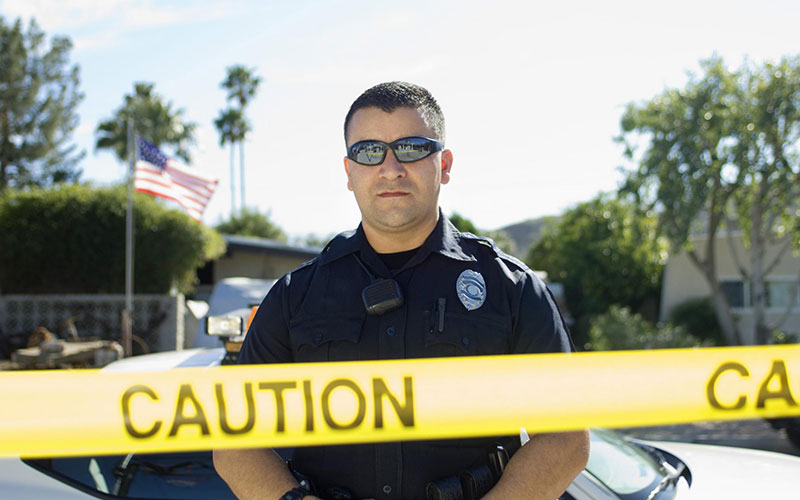
Our experienced workers’ compensation lawyers stand up for police officers injured on duty.

How ambulance drivers, EMTs and paramedics in Arizona can obtain their workers’ compensation benefits

How Arizona workers’ compensation law applies to firefighters injured or killed in the line of duty

Working with PTSD may not be easy, but it can be manageable.
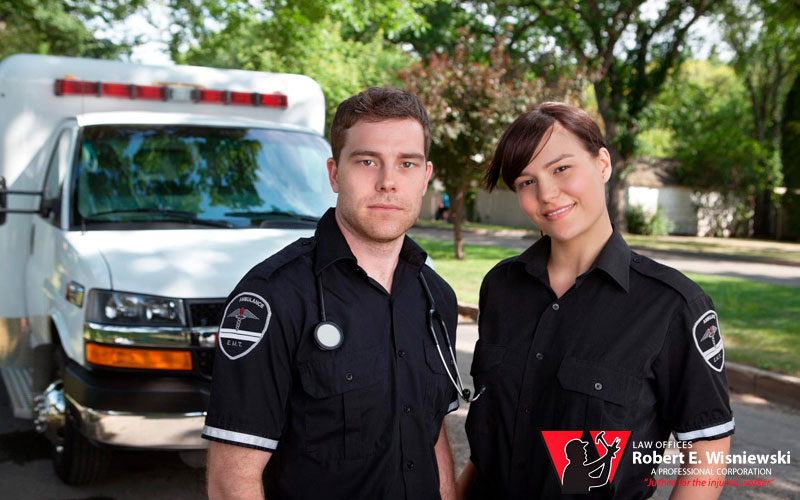
A critical appeals case was decided in favor of police, firefighters and first responders.

Workers’ compensation certified specialist. PTSD lawyer for first responders and police officers.
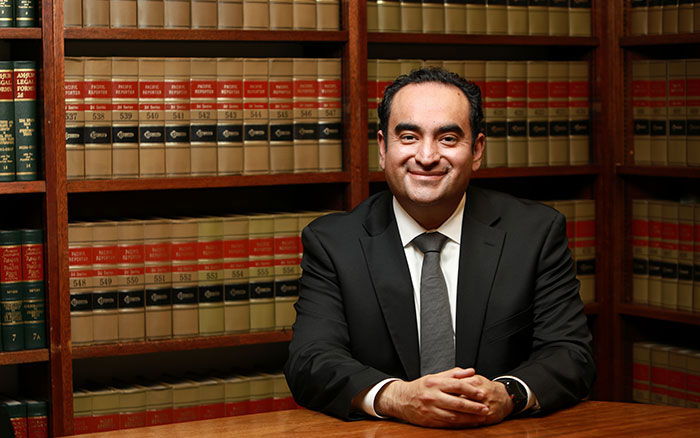
Certified workers’ compensation specialist under the Arizona Board of Legal Specialization
Questions and answers about compensation for a job-related accident, injury or illness in Arizona
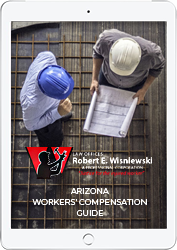
Arizona Workers’ Compensation Guide
FREE E-BOOKWhat do you do if you’re injured on-the-job? Our free guide contains knowledge to help the injured worker understand the workers’ compensation application process.
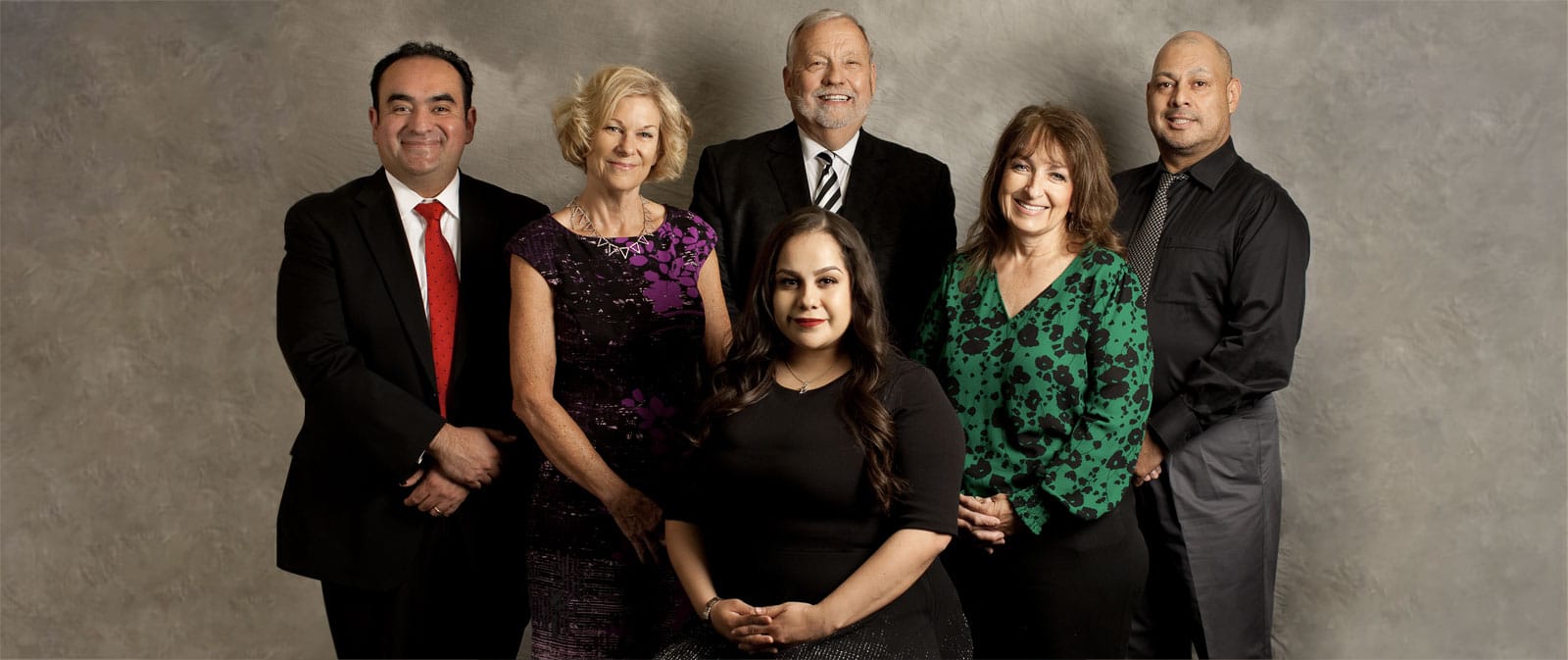
Mr. Wisniewski has been recognized as the premier workers’ compensation lawyer in Arizona. He is the only claimants’ attorney recognized as a Fellow of The College of Workers’ Compensation.
"It costs no more to hire the best."
Contact Our Arizona PTSD Injury Lawyers For Your FREE Consultation
If you have experienced a traumatic event in the workplace and believe you may be suffering from PTSD, seek help from a licensed mental health professional immediately. Then, call Bob Wisniewski, who is highly experienced in PTSD claims and will help you through the complex workers’ compensation claim process.
Under Arizona workers’ compensation law, injured workers only have 1 year from the date of the event and/or diagnosis of PTSD to file a claim with the Industrial Commission of Arizona. The worker must also notify their employer as soon as possible after being diagnosed with work-related PTSD.
Mr. Wisniewski has represented many Arizonans suffering from PTSD, including law enforcement officers and first responders when they’ve been deprived of the benefits they are owed. Our Phoenix workers’ compensation lawyers can provide you answers on what to do next and how to protect your rights now. We’ll fight to ensure you receive the care and compensation you deserve.
Why hire our Arizona workers’ comp lawyers?
- We understand the special needs of an injured worker
- Trained and helpful staff
- Personal attention to clients
- Calls promptly returned
- Clients kept up-to-date on case
- State-wide service
- Aggressive & experienced representation
- Hablamos español
Don’t delay any longer. Let us show you how we can assist you with your workers’ compensation PTSD claim.
While our main law office is in downtown Phoenix, we handle workers’ compensation claims throughout Arizona – including Yuma, Kingman, Payson and Flagstaff.




